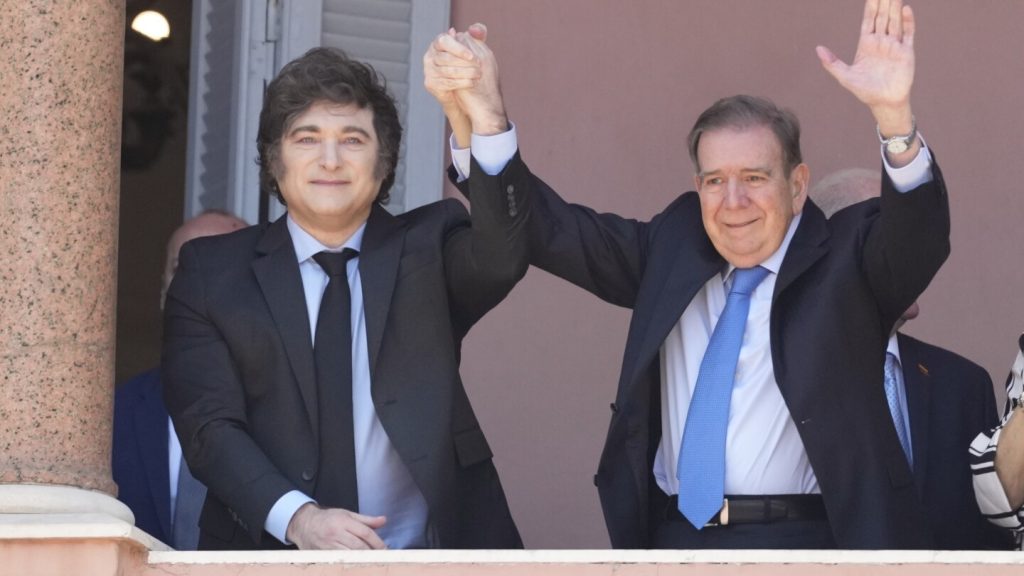Venezuelan opposition leader Edmundo González, recognized by the United States as the winner of last year’s presidential election, began an international tour that included a stop in Buenos Aires where he met with Argentine President Javier Milei. A crowd of Venezuelan migrants showed their support for González, chanting “Edmundo, Presidente” as he waved from the balcony of the Casa Rosada. González, a retired diplomat, has been in exile in Spain since September after an arrest warrant was issued following the disputed election in which Nicolás Maduro was declared the winner.
Despite the arrest warrant and the pressure from Maduro’s government, González remains determined to return to Venezuela and be sworn in for the presidential term which is set to begin on January 10th. He has not disclosed his plans to challenge Maduro’s hold on power, especially since the ruling party controls all institutions and the military. Maduro’s government has intensified efforts to locate González, offering a $100,000 reward for information on his whereabouts and posting wanted bulletins on social media and at the country’s main airport. González plans to travel to the U.S. to meet with President Joe Biden, as well as making stops in Uruguay, Panama, and the Dominican Republic as part of his international tour.
During his visit to Buenos Aires, González highlighted the plight of Venezuelan activists who have sought refuge in the Argentine ambassador’s residence in Caracas. Maduro’s government cut ties with Argentina and expelled diplomats after the country refused to recognize his reelection. Despite pleas for safe passage to Argentina, these activists remain holed up in the diplomatic compound, unable to seek exile. The Argentine national guardsman, Nahuel Gallo, was also arrested in Venezuela under accusations of terrorism, further straining diplomatic relations between the two countries.
The exodus of Venezuelans fleeing political turmoil, economic chaos, and political repression under Maduro has led to an estimated 220,000 Venezuelans residing in Argentina alone. Many like Janet Avila, a school teacher who left Venezuela two years ago, long to return home to be with their families. The international community, including the Biden administration and European governments, have rejected the official election results, citing a lack of transparency in the voting process. Opposition tally sheets collected from electronic voting machines show González winning by a significant margin, despite being a last-minute replacement for María Corina Machado, who was barred from running for office.
González’s journey to reclaim the presidency and challenge Maduro’s authority reflects the ongoing political crisis in Venezuela and the struggle for democracy in the region. The international community’s support for González and condemnation of Maduro’s government’s actions adds pressure on the regime to address human rights abuses and allow for a peaceful transition of power. As González continues his tour and efforts to mobilize support, the future of Venezuela remains uncertain, with the hopes of millions of Venezuelans resting on the possibility of change and a return to democracy.


